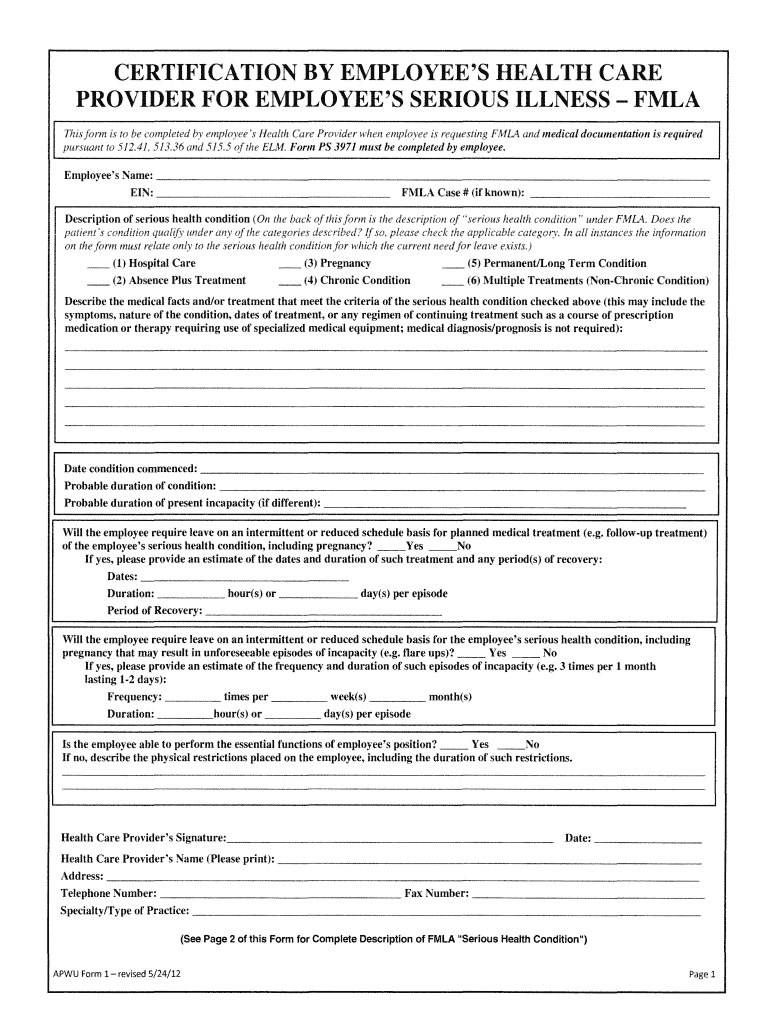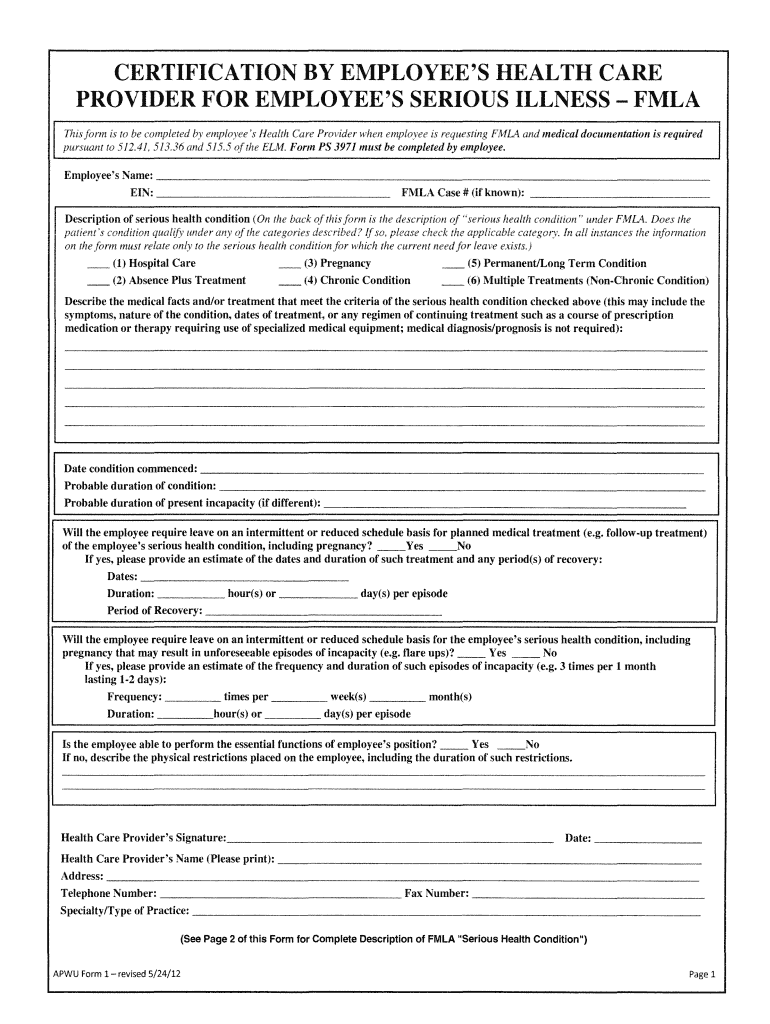Do You Need to Sign Paperwork for FMLA Leave?

When it comes to taking leave under the Family and Medical Leave Act (FMLA), understanding the necessary documentation is crucial. This process, while designed to protect employee rights, can sometimes be overwhelming due to the paperwork involved. Here, we delve into the specifics of what forms you might need to sign, why they are important, and how to navigate this administrative aspect of FMLA leave effectively.
Why FMLA Leave Requires Documentation

FMLA leave offers employees up to 12 weeks of unpaid, job-protected leave per year for certain family and medical reasons. Here’s why documentation is a key part of this:
- To Verify Eligibility: Documentation ensures that both the employer and employee are aware of the employee's eligibility under FMLA. This includes verifying that the employee has worked at least 1,250 hours during the previous 12 months and that the company has at least 50 employees within a 75-mile radius.
- Detailing the Leave: The paperwork allows for specifying the nature of the leave, whether it's for childbirth, care for a seriously ill family member, or personal health issues, which helps employers in planning and managing workforce needs.
- Legal Compliance: FMLA compliance requires meticulous record-keeping to protect both the employee and the employer from potential legal disputes.
The Paperwork Process

The documentation process for FMLA typically involves the following steps:
- Notification: You must notify your employer about your need for FMLA leave or your intent to take leave. This can be done verbally or in writing, but for legal clarity, employers often require written notice.
- FMLA Form Completion: Employers provide employees with necessary forms like:
- WH-380-E: Certification of Health Care Provider for Employee's Serious Health Condition
- WH-380-F: Certification of Health Care Provider for Family Member’s Serious Health Condition
- Medical Certification: A healthcare provider needs to certify the need for leave due to a serious health condition. This form includes details like the expected duration of the condition, necessary treatments, and the estimated time off work.
- Employer's Response: Your employer must respond to your leave request within five business days of your initial notice. They will inform you if your leave is designated as FMLA leave or not.
- Intermittent or Reduced Leave Schedule: If applicable, you might need to fill out forms specifying the intermittent nature of your leave or the reduced schedule you're requesting.
Important Forms and Their Purpose

Here is a summary of some critical forms:
| Form | Purpose |
|---|---|
| WH-380-E | Used when the employee has a serious health condition necessitating leave. |
| WH-380-F | Needed when leave is for the care of a family member with a serious health condition. |
| WH-381 | A Notice of Eligibility and Rights and Responsibilities under the FMLA. |

📝 Note: Ensure that all forms are filled out completely and accurately to avoid any delays or issues with your FMLA leave approval.
Navigating the Process

- Communication is Key: Maintain open communication with your employer’s HR department. Clarify any doubts or get help with forms if needed.
- Be Timely: Submit all paperwork within the requested timeframe to ensure your leave is approved without unnecessary delays.
- Prepare for Follow-up: Sometimes, additional information might be requested by your employer or the healthcare provider. Be prepared for this possibility.
- Understand Recertification: If your leave extends beyond the original certification, recertification might be necessary.
Common Pitfalls to Avoid

Here are some issues to avoid:
- Not informing your employer in time or at all
- Providing incomplete or inaccurate information on the forms
- Not complying with the employer's procedural requirements for FMLA leave
Legal Considerations

Remember:
- Confidentiality: The details provided in your medical certification are confidential and protected under HIPAA.
- Non-Retaliation: Employers cannot retaliate against you for taking FMLA leave.
- Return to Work: Your employer must allow you to return to the same or an equivalent position upon your return.
In conclusion, while the paperwork for FMLA leave might seem overwhelming, understanding the process can significantly ease your leave-taking experience. It's essential for ensuring your rights are protected, the leave is appropriately documented, and your job is secure. By being proactive, timely, and communicative, you can navigate this process with less stress and more certainty about your leave and job security.
What should I do if my employer denies my FMLA leave request?

+
If your FMLA leave request is denied, you should:
- Ask for the reason for the denial in writing.
- Review your eligibility to make sure all requirements are met.
- Consider filing a complaint with the Wage and Hour Division of the Department of Labor.
- Seek legal advice if you believe the denial was unjust or in violation of the FMLA regulations.
Can I take FMLA leave for mental health?

+
Yes, FMLA can cover leave for serious health conditions, which include mental health issues that require ongoing treatment by a healthcare provider or conditions that could result in incapacity for more than three consecutive calendar days and involves either treatment two or more times or one treatment followed by a regimen of continuing treatment.
How do I fill out the FMLA forms correctly?

+
To fill out FMLA forms correctly:
- Read the instructions carefully.
- Provide accurate personal and medical information.
- Ensure your healthcare provider completes their sections thoroughly.
- Submit the forms within the required timeframe.
- If you need clarification, ask your employer’s HR department or your healthcare provider for assistance.